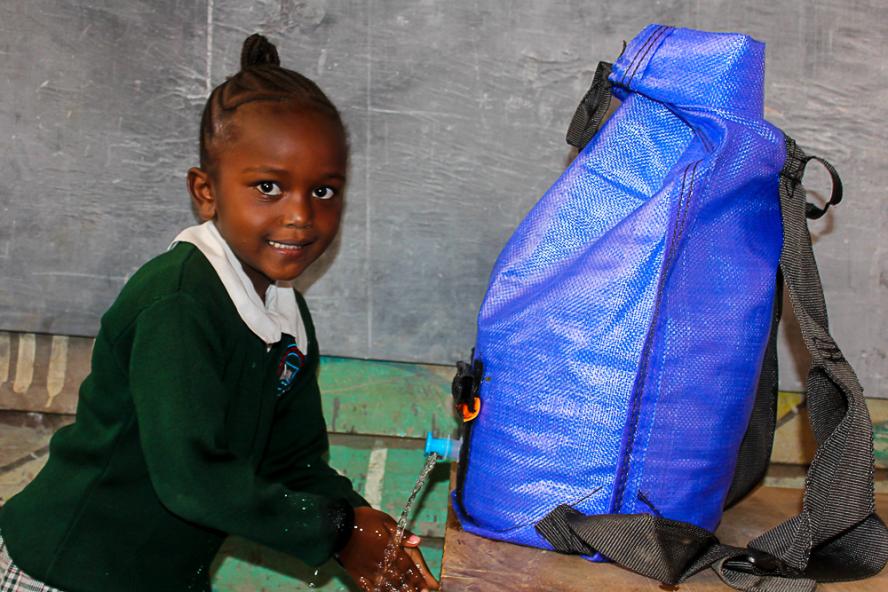Talloires Network Awards Grants to Five International University-Community Partnerships

The Talloires Network, an international association of universities committed to civic engagement whose secretariat is based at Tufts University’s Tisch College, recently awarded a total of $100,000 to five university-community partnerships around the world responding to the coronavirus pandemic.
The grants are part of the University Award for Innovative Civic Engagement, a program established by the Talloires Network in partnership with Open Society Foundations. The University Award for Innovative Civic Engagement aims to discover, learn from, and support the leadership of novel university civic engagement partnerships that connect universities and local communities in ways that contribute to more equal and more inclusive societies.
As a primary component of the program, these grants will provide financial support to Talloires Network member institutions in the Global South who are working to help their communities during the pandemic. Eligible projects included research partnerships, service-learning experiences, and other community engaged initiatives focused on public health, displaced people, climate justice, and/or access to higher education. The international selection committee also prioritized partnerships that incorporate gender equity, diversity, and inclusion into their mission and activities.
“We received a number of impressive applications for these grants, and we’re inspired by the winners, who truly exemplify how students, faculty, and leaders of civically engaged universities can partner with local communities to respond effectively to a crisis like COVID-19.” said Lorlene Hoyt, Executive Director of the Talloires Network. “We look forward to learning a lot from these partnerships and widely sharing their approaches so that other institutions around the world can forge or refine their own effective, ethical, and reciprocal collaborations in these challenging times.” In fact, the program will establish a virtual community of practice to facilitate reflection, dissemination, and further action.
Read more about each grantee:
Cameroon: Health Care for Internally Displaced Persons in Cameroon to Mitigate the Impacts of COVID-19
Partners: Meridian Global University and the Access Care Foundation
Project: This initiative will provide basic healthcare services for people trapped or displaced by the conflict in the Anglophone Regions of Cameroon. The partnership will focus on a hygiene and education campaign, and other preventive measures against the COVID-19 pandemic, as well as the reduction of maternal or neonatal deaths.
Kenya: Co-creation Strategies for Improving the Health of Children and Access to Safe Water in a Time of Crisis
Partners: Mount Kenya University and Partners for Care
Project: The partners will implement more sustainable and impactful interventions in rural East Africa to improve the quality of water and sanitation services. The interventions aim to reduce waterborne illnesses and preventable diseases and in light of the COVID-19 pandemic, they are focusing on setting up handwashing stations to curb the spread of the virus.
Mexico: Food Security & Health Promotion Initiatives During the COVID-19 Crisis
Partners: Universidad Veracruzana and the Veracruz State Department of the Environment
Project: The initiative will involve indigenous youth in food security projects throughout the region. By way of participatory research and reflection-in-action, community members will work with students to incubate start-up projects in conservation of water resources, greenhouses, and agroecological farming.
Nicaragua: Biopsychosocial Strengthening of the University Community and its Environment Against COVID-19
Partners: National Autonomous University of Nicaragua in Managua in collaboration with municipal mayors and non-profit community institutions
Project: This campus-community effort will promote biopsychosocial health and wellness habits. The university’s Psychosocial and Community Clinic will be working with its partners to offer additional resources online and to promote community awareness of the importance of mental health during the COVID-19 crisis.
Zimbabwe: Combating COVID-19 Through Digital Innovation and a Community-Driven Approach
Partners: University of Zimbabwe and the Glen Norah Community Cooperative
Project: This initiative will address the devastating impact of COVID-19 on people’s livelihoods and the local economy. It will promote decent employment creation and income generation by providing entrepreneurship education and establishing a revolving loan facility for vulnerable small and medium-sized enterprises and entrepreneurs.